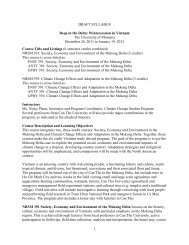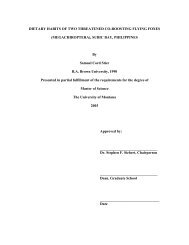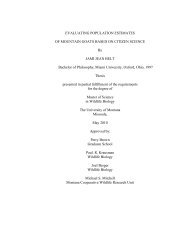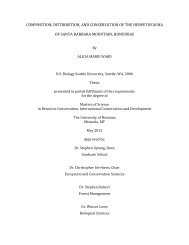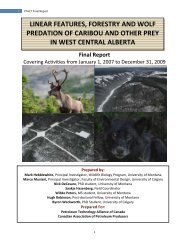Swidden Agriculture: Ancient Systems in Transition Sustaining Food ...
Swidden Agriculture: Ancient Systems in Transition Sustaining Food ...
Swidden Agriculture: Ancient Systems in Transition Sustaining Food ...
You also want an ePaper? Increase the reach of your titles
YUMPU automatically turns print PDFs into web optimized ePapers that Google loves.
Integral swidden practices have been opposed and suppressed by both<br />
colonial and post-<strong>in</strong>dependent governments around the world. Colonial and<br />
nation states directly and <strong>in</strong>directly suppressed <strong>in</strong>tegral swidden systems by:<br />
- ignor<strong>in</strong>g traditional land & resource rights <strong>in</strong> legal documents & cadastral<br />
surveys<br />
- grant<strong>in</strong>g concessions for logg<strong>in</strong>g & export cash crop plantations on<br />
ancestral lands of swidden cultivators which elim<strong>in</strong>ates the viability of<br />
land extensive long fallow swidden practices<br />
- encourag<strong>in</strong>g migration to avoid socioeconomic problems & land tenure<br />
<strong>in</strong>equities elsewhere (e.g., Brazil) or to provide plantation labor or<br />
pursue national development policies (e.g., transmigration <strong>in</strong> Indonesia)<br />
State opposition to <strong>in</strong>tegral swidden agriculture reflects:<br />
- ignorance, particularly re. its productivity, susta<strong>in</strong>ability and resilience<br />
- bias towards ‘modern’ <strong>in</strong>dustrial, agriculture<br />
- cultural/racial/development bias - many swidden societies are m<strong>in</strong>orities<br />
- desire to control populations for purposes of taxation and for cultivation<br />
export cash crops






